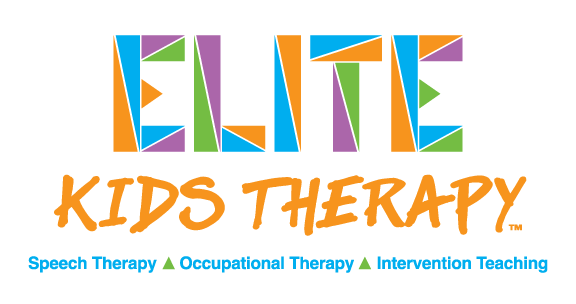- by Healthy Holistic Living
- Published on March 21, 2018
- https://www.healthy-holistic-living.com/childhood-anxiety/?utm_source=CA&fbclid=IwAR34HmxT0zFEWbeQUQBwVY8fT2G0drRNA9U-UxcKv8g13YJIJtk6p6iLiBo
Often people don’t realize how much stress children can experience and how much pressure they can be under. Sometimes this pressure is put on themselves when they compare themselves to others, or sometimes they feel this pressure coming from parents or other family members. But one thing that is for sure is that childhood anxiety can develop into a much bigger problem if children don’t learn how to cope.
Childhood Anxiety

Childhood anxiety, and anxiety in general, is a form of stress that almost everyone experiences at some point in their lives. Children can experience different anxiety disorders the present unique symptoms, but all disorders have the same underlying trait – prolonged, intense anxiety that is out of proportion to the present situation and affects a person’s daily life and happiness [1].
Childhood anxiety can take the form of a few different disorders, including [1]:
- Generalized Anxiety. This is a common disorder, where children worry about things like school, family, or the future. Besides a looming sense of dread, physical symptoms may manifest like headaches, stomach aches, muscle tension, or tiredness.
- OCD (Obsessive Compulsive Disorder). Kids with OCD express their anxiety through obsessions and compulsions.
- Phobias. Intense fears about certain things or situations like clowns, small spaces, etc. Children with phobias will avoid the things that they fear.
- Social Phobia (Social Anxiety). This is triggered when speaking in front of others or other social situations. A less common form of social anxiety is called selective mutism, where children or teens are too afraid to talk in certain situations.
- Panic Attacks. These anxiety episodes can happen at any time without warning. Physical symptoms that children can experience are a pounding heart, shortness of breath, dizziness, numbness, or tingling feelings.
- PTSD (Post Traumatic Stress Disorder). This anxiety disorder stems from a prior traumatic experience. Symptoms can include flashbacks, nightmares, fear, and avoidance of the traumatic event that caused the anxiety
Parents play a vital role in helping their children deal with their anxiety, but they can also make things worse. It’s important when dealing with childhood anxiety to make sure that the child feels validated in what they’re feeling because to them it is very real. Don’t make your kids feel embarrassed that they’re feeling emotional, or belittle their fears. This can lead them to close themselves off and deal with their anxiety in negative ways.
35 Phrases To Help Your Child With Anxiety

As parents, you do everything you can to protect your child but it’s impossible to shield them from anxiety. What you can do is help them identify where their feelings are coming from and help them accept and work through these anxious moments. Here are 35 phrases you can use to help deal with childhood anxiety [2]:
‘I love you. You are safe’
When a child is feeling anxious, being told that they are loved and being protected by someone that they love can help soothe them and eases their anxiety.
‘Let’s pretend we’re blowing up a giant balloon. We’ll take a deep breath and blow it up to the count of 5’
Trying to tell an anxious child to take a deep breath will most likely result in them telling you they can’t. Make it a game to take their minds off of what is happening. Taking three deep breaths and releasing them out will actually reverse the stress response in the body.
‘Why do you think that is?’
This works well with older kids who can actually explain why they’re feeling the way they are.
‘What comes next?’
If you child is feeling anxious about an upcoming event, talk to them about what happens after. Anxiety can cause nearsightedness and make it seem like there is nothing past the cause of their anxiety.
‘No one can stop us’
Separation is a huge anxiety trigger for small children. Assure them that you will be together, even when they can’t see you.
Have a battle cry.
Yelling can release endorphins and help overcome the initial fear and get your children moving, plus, yelling something silly is fun,
‘If your feelings were a monster, what would it look like?’
By giving their anxiety a face and body, you can make an abstract feeling more concrete and make it easier for your kids to talk about their feelings.
‘I’m so excited for _____’
Sharing excitement about a future moment can help ease anxiety.
‘Let’s put your worry aside for now while we ________. Then we can come back to it’
People with anxiety carry that feeling until whatever their anxious about is over. Children who are anxious about something in the future they can’t change can benefit from doing something they enjoy to help put their worry in perspective.
‘Let’s get comfortable until this feeling passes’
Getting comfortable can ease the mind and the body. Things like weighted blankets have been proven to help anxious children feel comfortable.
‘Let’s talk it out’
Let your child talk and ask questions about their fears, it can help them get a better handle of it by understanding.
‘Let’s count the ____’
Whenever your child is feeling anxious, ask them to count the number of people in the room, or the number of blue objects, and so on. This requires observation and thought, which can lessen the feeling of anxiety in your child.
‘Close your eyes and picture _____’
Visualization is a powerful tool for easing pain and anxiety. Guide your child through images of a safe, warm, happy place and, if they’re listening closely, their physical symptoms will dissipate.
‘I feel _____ sometimes too, it sucks’
Empathy can go a long way, especially with older children. You can start a conversation on how you overcame your own anxiety.
‘You’re not the only one who feels like this’
It’s important to let your child know that, even if it doesn’t seem like it, other children, teens, and adults have felt this way at some point in their lives. If they got through it, so can they.
‘What’s the worst that can happen?’
Ask your child what the worst possible scenario would be, and then talk to them about the chances of that happening. Then ask them what the best scenario would be. Finally, ask them what the most likely scenario would be. This helps your child learn how to think more critically when they’re feeling anxious.
‘Worrying can be helpful sometimes’
By explaining to your child about how worrying can be beneficial in some cases, it can reassure them that there is nothing wrong with them.
‘Let’s have a debate’
This works great with older kids who are feeling anxious. Have a point/counter-point style debate with them; you’ll end up learning a lot about their reasoning process and where this anxiety is coming from.
‘What’s the first thing we need to deal with?’
Anxiety can make things seem more insurmountable than they really are. By breaking things down into a list, you can help your child see that the entire experience isn’t causing them anxiety, just one or two things.
‘Remember when ____’
Reminding your child about a past time they overcame their anxiety can give them the confidence to pass this new obstacle.
‘I’m already proud of you’
By letting your child know that you’re already happy with their efforts, regardless of the outcome, can help relieve a lot of the stress of being perfect, something a lot of children worry about.
‘How can I help’
Let your child take control of how they deal with their anxiety by telling you what they need to help the feel better.
‘This feeling will pass’
Periods of anxiety can feel never ending to children, so reassuring them that this feeling isn’t permanent can help them gain perspective and let them know that relief is coming.
‘I know this is hard’
Let them know that you know they are struggling. Validation shows your children that you respect them and their worries.
‘Tell me about it’
Talking out your child’s anxiety can help them work through it on their own and come up with a solution. Make sure to just be a sounding board and not interrupt with your own suggestions.
‘You are so brave!’
By reaffirming your child’s ability to handle an episode of anxiety, you empower them to succeed in the future.
‘Which calming strategy do you want to use this time?’
Each episode is different, so different calming strategies are needed. Ask your child what they need and they can eventually help themselves by choosing what works.
‘We’ll get through this together’
Letting your child know that you’re there and reassuring them with your physical presence can help them overcome whatever is making them feel anxious.
‘What else do you know about (cause of anxiety)’
When your child is calm, talk to them about what is causing them anxiety. Research the topic together and learn whatever you can about it, that way when they feel anxious again, they can recall what they learned with you. This removes power from the cause of anxiety and empowers your child.
‘What do you need from me’
Ask you child what you can do in the moment to help, it could be a hug, a story, or a song.
‘Let me hold you’
Physical contact can make your child feel safe and protected and ease feeling of anxiety.
‘Remember when you made it through ____’
Reminding your child about past victories can help them overcome their current troubles.
‘Help me move this wall’
Physical activities like pushing on a wall or pulling on resistance bands can relieve tension and emotions.
Cincinnati Therapy Connections will be changing our name. This gives us anxiety! We didn’t know we would be required to change our name and are using these phrases to help assure us, that it will be, “ok!” A trademark was created and our name is too similar. We don’t want to be confused with another company, so Cincinnati Therapy Connections will become stronger and better in the end with our new name. Stay tuned for an announcement of our new name. We will always be Cincinnati Therapy Connections, just with a new name and modern logo! We hear some people are offended by the puzzle piece in the autism community and will work towards removing any stigma which my impact our view within the community. Stay tuned for the announcement of our new name! In the mean time we will continue to provide speech and occupational therapy for your child. We have SLP’s and OT’s all around Cincinnati and through Dayton. :o)

